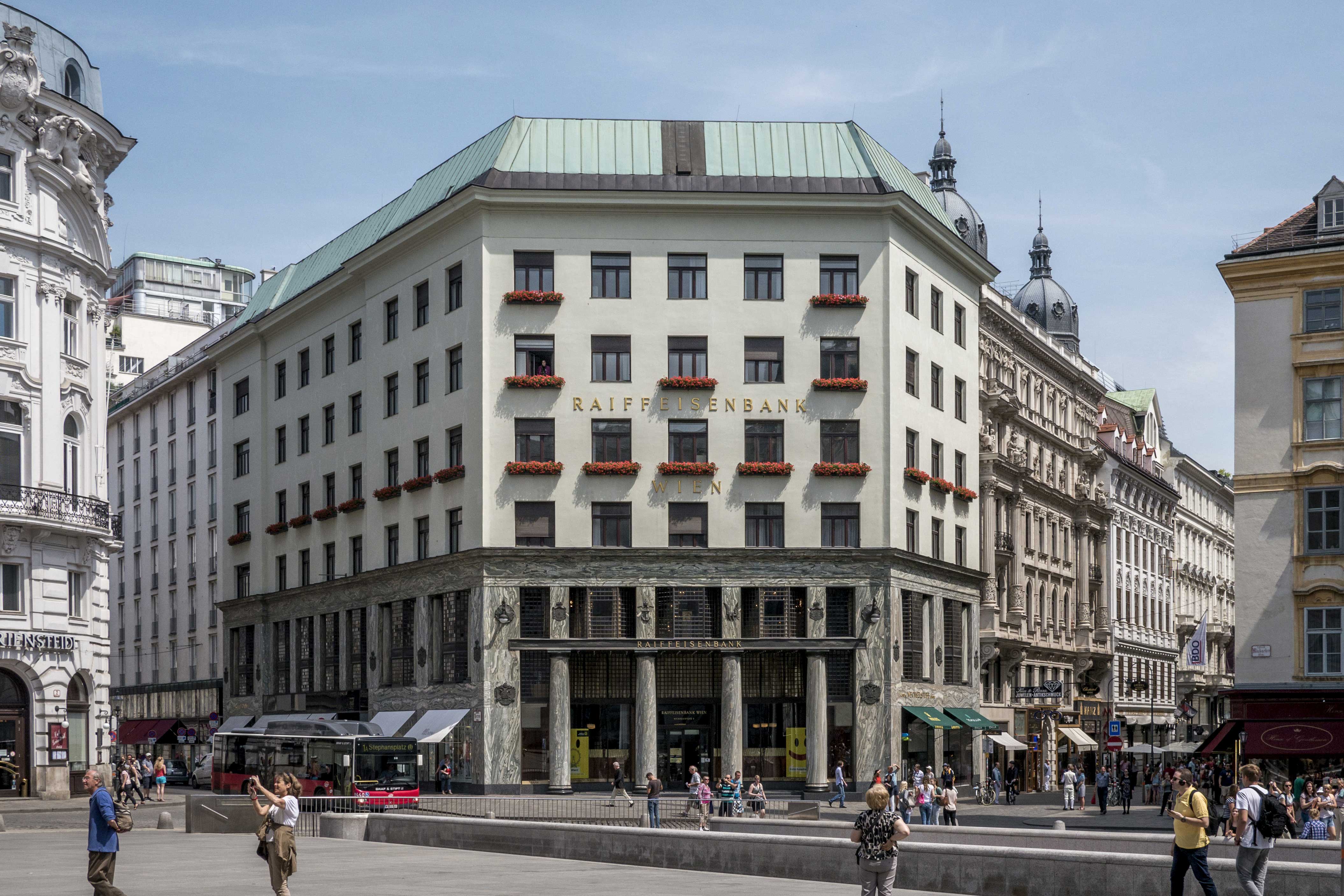
ADOLF LOOS OUR CONTEMPORARY Il ViaggiatoreMagazine
Adolf Loos (December 10, 1870-August 23, 1933) was a European architect who became more famous for his ideas and writings than for his buildings. He believed that reason should determine the way we build, and he opposed the decorative Art Nouveau movement, or, as it was known in Europe, Jugendstil.

Why 2015's Most Important Design In Architecture Isn't A Building, But A New York Times Article
Adolf Loos (1870-1933) was a functionalist who believed in simplicity. He had traveled to America and admired the work of Louis Sullivan. When Loos returned to Vienna, he brought with him new modernity in both style and construction.

Apartment design, Interior architecture, Retro interior design
Adolf Loos: private houses (Adolf Loos and Heinrich Kulka, Duplex in the Werkbundsiedlung, Vienna's 13th district, Woinovichgasse 13, 15, 17, 19, 1930-1932; Model: Prof. Hans Puchhammer, TU Wien; © ALBERTINA, Vienna) Despite centuries of history, one short time periodseems to feature remarkably often in Vienna's museum exhibitions.

Adolf Loos Architect Biography, Buildings, Projects and Facts
The Looshaus hotel and restaurant — a wooden building on the mountainside with everything for today's guest. A wonderful place to be, whatever the season. With unobstructed views over a stunning landscape. The uncluttered simplicity of Adolf Loos' architecture goes hand in hand with the down-to-earth cordiality of the people who work here.

Adolf Loos, Haus Stoessl, Vienna (191112) House, Loos, House styles
Das Haus Wien I., Michaelerplatz 3, das sogenannte Looshaus oder auch Michaelerhaus ist eines der zentralen Bauwerke der Wiener Moderne in Wien und das Hauptwerk des Architekten Adolf Loos. Es markiert die Abkehr vom Historismus, aber auch von dem floralen Dekor des Secessionismus. Es steht gegenüber dem Michaelertrakt der Hofburg .

Haus Rufer Wien 1922_Adolf Loos Walter gropius, Alvar aalto, Gevel
The Loos House, today Michaelerplatz 3, is owned by the Raiffeisenbank Vienna. Loos House - Patio Loos House - Business Center While the shop's facade on the ground floor is beautifully veined marble, the interior exudes a similar luxury, thanks to polished wood, lustrous mirrors, and effectively textured skylights on the main staircase.

Adolf Loos 1912 1913 Wien Haus Scheu art nouveau Pinterest Haus
The Looshaus is a commercial and residential building at Michaelerplatz 3, between Herrengasse and Kohlmarkt, in Vienna. Designed by Adolf Loos and completed in 1912, it is considered a major building of Viennese Modernism . Building

Pin on Theory Week 3
Loos believed that by removing the "excess" and "clutter" of architecture, the design would shape people's habits and enable them to live well- core values of modernism that are still.

Art Resource Fine Art Stock Licensing Architecture design, Architecture, Modern architecture
Adolf Loos (b. 1870-d. 1933) was one of the key figures in the early history of modern architecture and design. He was a seminal thinker and practitioner who, through his executed projects and writings, shaped the forms of, and the discussions about, modernism in his time and long afterward. Loos practiced principally in Vienna, where he.

Adolf Loos Architect Biography, Buildings, Projects and Facts Architecture house
Haus Steiner Adolf Loos (December 10, 1870 in Brno, Moravia - August 8, 1933 in Vienna, Austria) was an early-twentieth century Viennese architect. He believed that what is beautiful must also be useful, and linked beauty and utility by returning an object to its true utilitarian value.

Loos Haus, Vienna Architectuul
The Loos House A fairly unobtrusive building in Vienna's centre once led to much outraged clutching of breasts, pearls, and handkerchiefs among the ruling Imperial family. The Loos House even received its own nickname: the house without eyebrows. Built in 1912 to plans by Adolf Loos Marks the architectural transition to Viennese Modernism

Adolf Loos Heimatlexikon Kunst und Kultur im AustriaForum
Meanwhile, Adolf Loos was a physically ailing man on a steep moral and social decline. The house itself was never truly commissioned by Baker, rather it lives mostly as a fantasy concocted by the.

Adolf Loos, Villa Winternitz in Prague, Czech Republic 1932 House styles, Architecture, Mansions
Adolf Franz Karl Viktor Maria Loos [1] ( German pronunciation: [ˈaːdɔlf ˈloːs]; 10 December 1870 - 23 August 1933) was an Austrian and Czechoslovak architect, influential European theorist, and a polemicist of modern architecture. He was inspired by modernism and a widely-known critic of the Art Nouveau movement.

“I do not draw plans, facades or sections” Adolf Loos and the... Architecture, Facade, Villa
Adolf Loos, a staunch advocate of modernism, was a fierce critic of ornamentation in architecture, which he viewed as superfluous and contrary to the spirit of modernity. He perceived the use of ornamentation as an unnecessary relic from the past that served no practical purpose and was thus meaningless in the modern age.

Galería de Adolf Loos, en perspectiva 3 Arquitectura historica, Arquitectura contemporánea
Introduction. Although in 1927 Loos lived in Paris, in one of his trips to Vienna he was commissioned by the textile businessman Hans Moller to design your house on a plot he owned in the capital Austrian.. Loos accepts the commission and with it the way they work "networking" while Zlatko Neumann, one of his aides, the plans prepared in Paris, the other a former student, Jacques Groag.

Adolf Loos, House at Michaelerplatz, Vienna , 1911 Arcology, White City, Loos, Vienna
The Viennese industrialist Paul Khuner commissioned Adolf Loos to build a country house. It was completed in 1930, and is a late work by the architect who has since attained worldwide fame. Hanna Sehn and Norbert Steiner's grandmother, Ilse Wurdack, bought the Looshaus in 1959. She restored it and turned it into a hotel and restaurant.